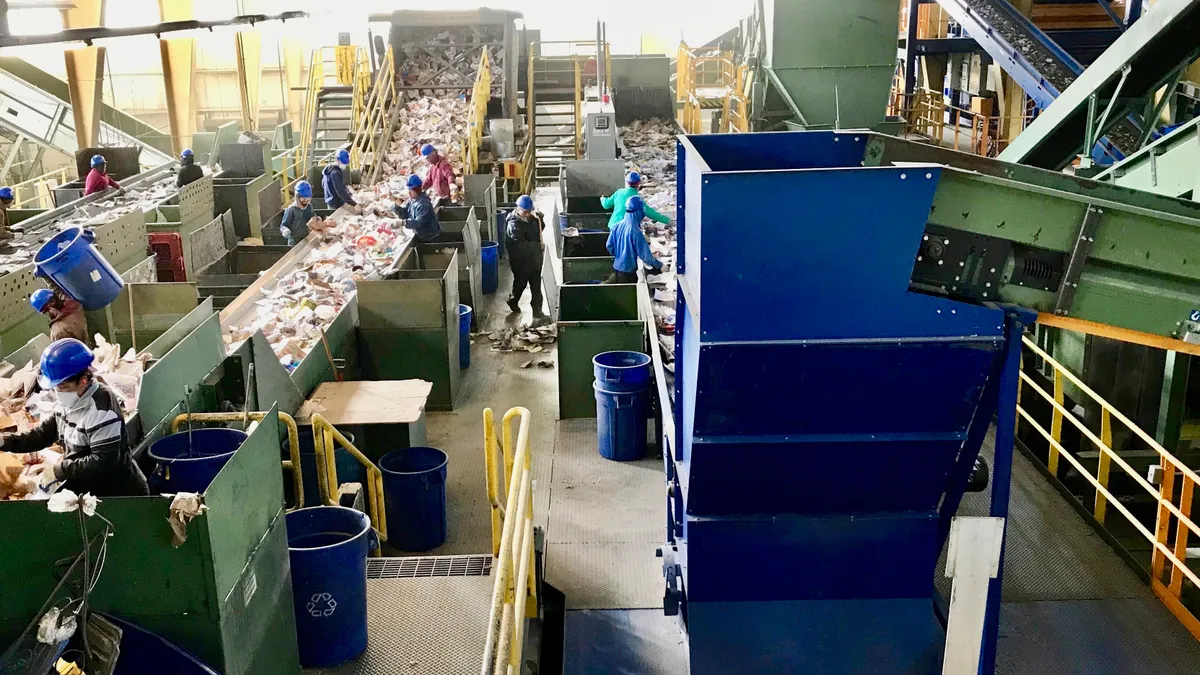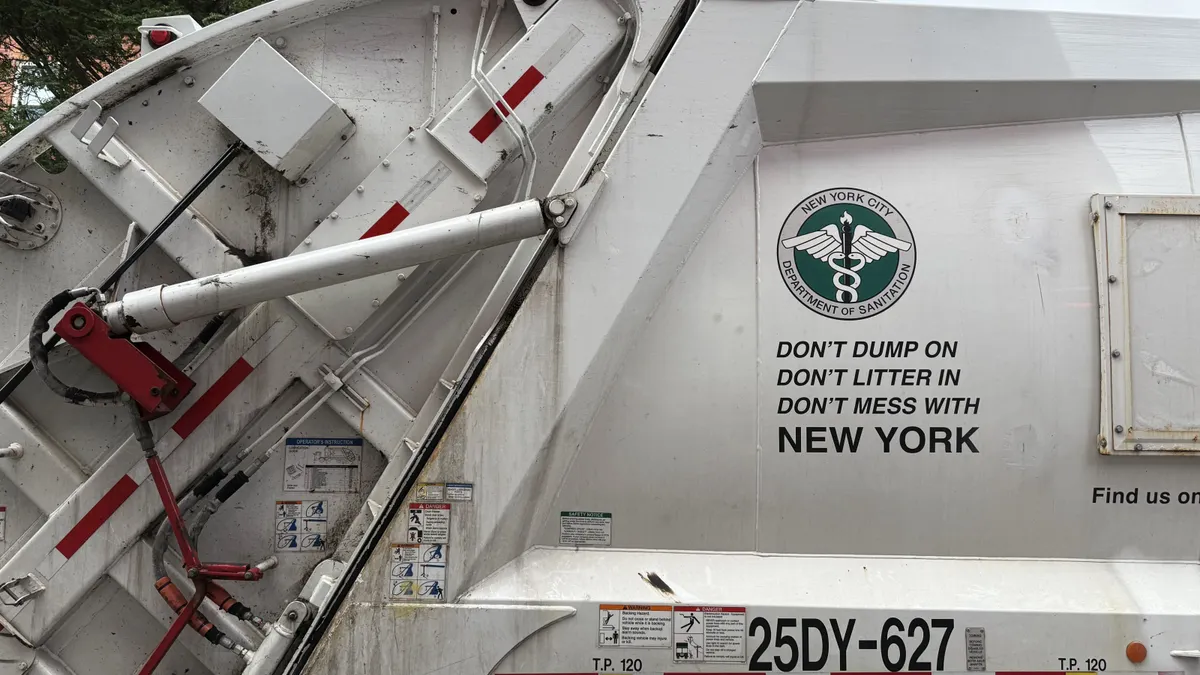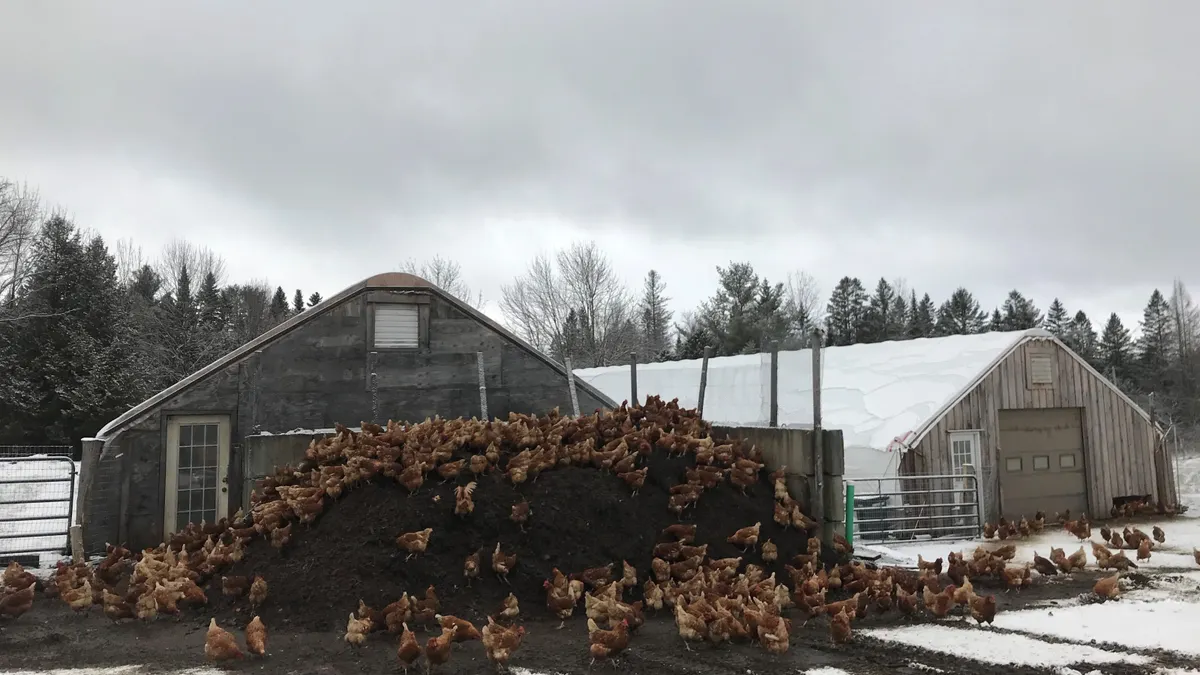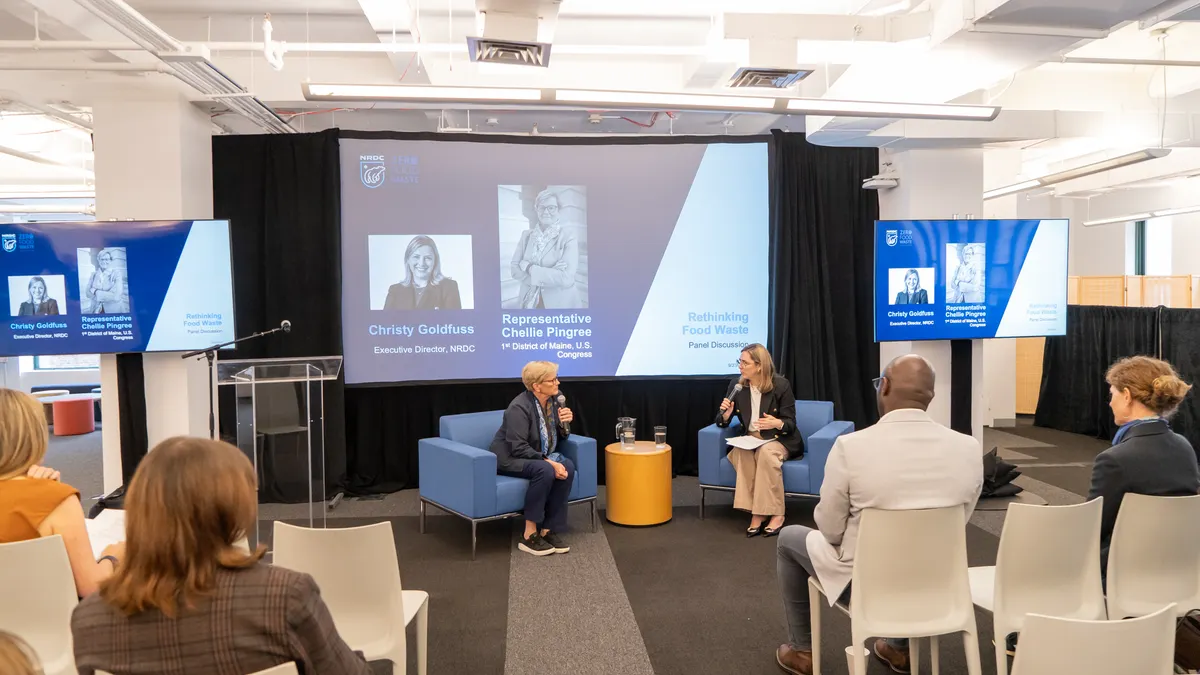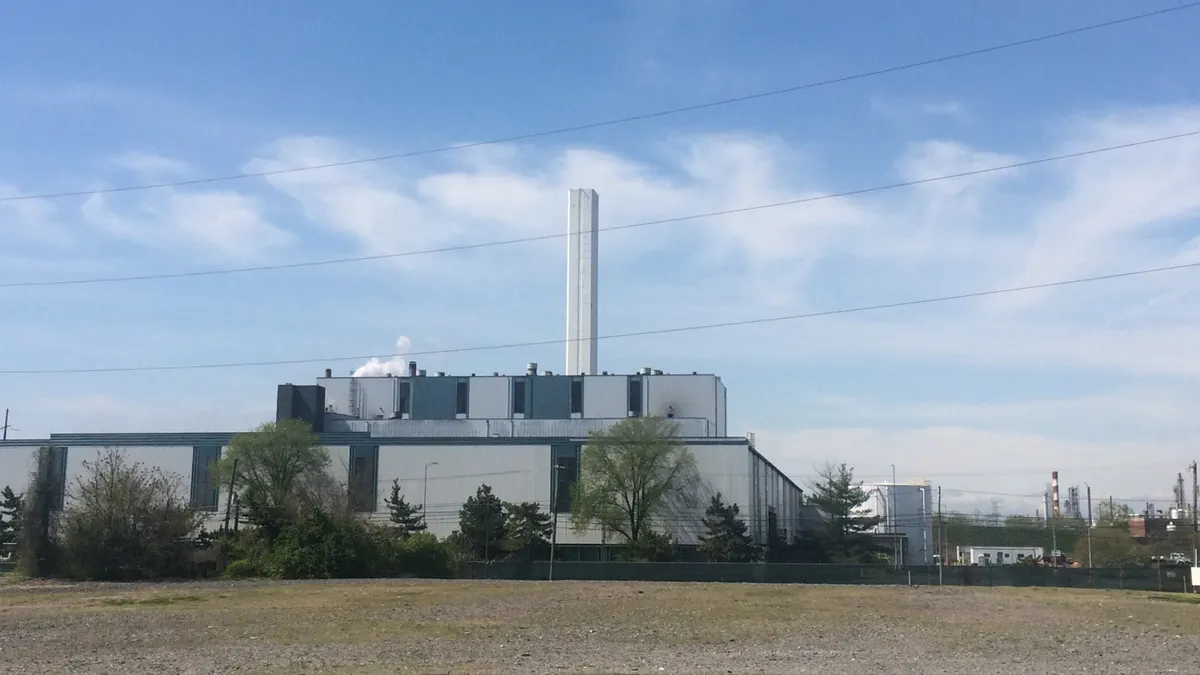Over at the Environmental Protection Agency (EPA), one woman is dedicating her career to ensuring the circular economy is an economy that all Americans will soon embrace.
Cheryl Coleman, director of the Agency's Resource Conservation and Sustainability Division, works day-to-day to encourage everyone across the supply chain to embrace Sustainable Materials Management (SMM), which Coleman explains as "think[ing] about materials from their inception." As a former employee for the state of South Carolina, Coleman made the journey to EPA on an Interagency Personnel Agreement three years ago and has been championing waste reduction — especially food waste reduction — ever since.
Waste Dive caught up with Coleman to discuss her efforts to boost food recovery, to encourage environmental awareness, and her experience as a woman through years of a changing industry landscape.
WASTE DIVE: What do you think is the biggest challenge the industry faces with food waste reduction?
CHERYL COLEMAN: I think the biggest challenge is making people aware. There have been several studies where folks were asked if they were wasting food and they said, “Of course not! I don’t waste food!” And then as they had further conversation and looked at how they managed the foods that they purchased, they realized they were wasting a lot more than they thought. I think that transfers into the industry sector also, which is one of the great things about SMM because you're looking throughout that material’s life and opportunities to reduce waste associated with that material. It requires a system approach so we are encouraging everyone within the food system — which includes you and me because we both eat — to really look at how they’re managing food.
From a company perspective, we want to make sure that food is available for people who want it, but if at the end of the day you find that you’re not going to sell as much food as you thought you were going to sell, if you’re a retailer, then donate that food. There are a lot of hungry people, one in five Americans is food insecure on a daily basis. So there are great opportunities to donate food and make it available to those who don’t have access to food. And then if you can’t donate it, then either compost it or put it through an anaerobic digester. But don't throw it in the landfill.
What is the EPA doing to make retailers know that donating food is OK?
COLEMAN: We’re working with the industry to really make date labels easier for folks to understand. Some of it has a date on it, some of it just has a plain date, some of it says “use by,” some of it says “sell by,” and it's really a quality issue. A food may reach that date that you see stamped on it and it’s still perfectly edible but it is not at the best quality as set by that company's standards. So we’re trying to get clarity around that by working with the industry and working with the various retailers. We also want folks to know that there are a number of tax incentives that can be employed by them in order to donate food and get a tax credit as a result of doing that, and then there have also been some recent changes to the Good Samaritan act or the Bill Emerson Act.
I've seen your name on many waste industry conference agendas and I personally always feel that women are underrepresented at these events. Would you agree that there are just not as many women in the industry as men? How would you suggest we combat this to get more women involved?
COLEMAN: As a person who is a lot older than you are I can tell you that there's been a tremendous change. When I first started out 30 years ago in government, I will tell you in my first interview the interviewer said to me, "There wouldn’t be a job shortage in the world if women were in the home where they belong." And that’s a true statement. He said that to me in the interview, and did not hire me by the way. And as a person fresh out of college I can tell you it was very discouraging but I did not give up. I continued going on interviews and I got a position with the state of South Carolina working in the Department of Health and Environmental Control, and used that as a platform to gain entry into the certified landfill operator class. So I was one of the first females in the state to become a certified landfill operator. And so I recognized that it was important to leverage my position at the Agency, to create opportunities and find doors that could be opened to me.
I think women have made a lot of strides but there’s always room for improvement. You’re absolutely right, there is a disproportionate number of women, especially in some job classifications associated with waste management but things are getting better and I think its very important for us as women to network with each other, either through social media or conferences ... So we create our own network system to support each other.
How would you encourage non-industry women to enter an industry that sometimes has a stigma of being “dirty” or of being a place where women don’t usually end up?
COLEMAN: The issues around waste or materials management have changed so much and it’s not just a science-based industry anymore. We employ people, for example at EPA, who are economists, we employ people who are in the media field because we need great communication to be able to reach all stakeholders, we look at scientists, we continue to have chemists and engineers and hydrogeologists. We need all of them in the waste industry but the needs have expanded so much and that creates opportunities for women who are in other fields, not just science-based fields, to come into the Agency. We reach out to colleges and universities, we have a great internship program at EPA, and encourage all students to apply. For example we’ve recently hired several new employees within my office and I have to tell you the response rate of applications by female candidates was tremendous and we were able to fill those positions with very qualified ladies or young women who were not just scientists.
In the past three years, what are you most proud of in your work?
COLEMAN: I think the opportunity to interact with our stakeholders, to attend conferences and get that message out there — to amplify the work that my colleagues here at the Agency are doing. I wanted to come to EPA because I saw it as a way to participate in a national platform, to advocate for better management of materials, so I took the lessons that I learned and the experience that I gained at the state level and brought that into a national position. [It] expanded my ability to be able to encourage folks to sustainably manage materials and also to be an example and a mentor for others and let them know that this is something that we can do but we just have to work together.
What is your best piece of advice for people who want to make a positive impact on the future of the environment?
COLEMAN: Never think that what you do is too small. We live in a connected world. What we do here in the United States impacts people in Asia, what they do impacts us. While the world is vast in land it is really small when you think about it over the long term because we are all inter-connected, so no matter what your position is, you are a leader. Whether you are a consumer or a president or CEO of a company, you have the opportunity to champion for change and to encourage others to not only efficiently use the materials that we have today, but make sure those resources are here for future generations.









